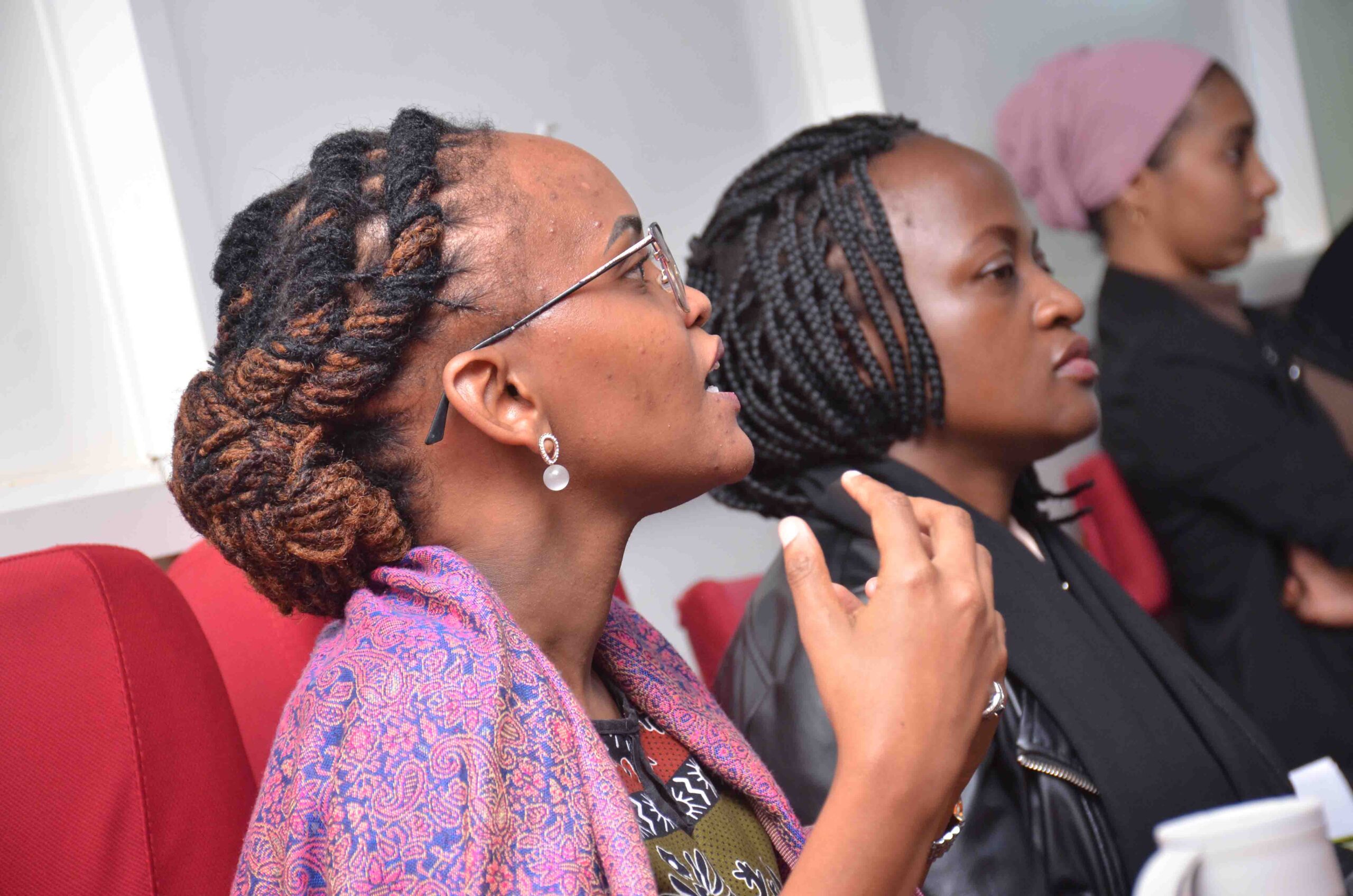Work Pay Negotiation Strategies for Women in Uganda: A resource for women in work.
Participants of the Business Incubator Discussions speak during a QA.
1. Introduction
Negotiating for fair pay is a critical skill for women in Uganda, as it directly impacts their economic empowerment and overall well-being. Despite the progress in gender equality, many women still face challenges in achieving pay equity. This guide draws on global best practices and adapts them to the Ugandan context, with practical examples from the Eliezah Foundation Initiative Uganda (EFIUG).
2. Understanding the Importance of Pay Negotiation
Why Negotiate?
- Close the Gender Pay Gap: In Uganda, as in many parts of the world, women often earn less than men for the same work. Negotiating pay helps close this gap.
- Enhance Economic Security: Fair pay contributes to financial independence, reducing the economic vulnerability that can lead to issues like Gender-Based Violence (GBV).
- Build Confidence and Professional Growth: Successfully negotiating pay builds self-confidence and sets a precedent for future negotiations, fostering long-term career development.
3. Common Barriers Women Face in Pay Negotiation
- Cultural Norms: In many Ugandan communities, cultural expectations discourage women from advocating for themselves, particularly in professional settings.
- Lack of Information: Women may not have access to information about fair pay standards in their industry, making it difficult to negotiate effectively.
- Fear of Retaliation: Concerns about potential negative consequences, such as job loss or being labeled as difficult, can deter women from negotiating.
4. Global Best Practices in Pay Negotiation
4.1. Lessons from Other Global Organizations
Global Start Smart and Work Smart Programs:
- Research-Based Preparation: Organisations emphasize the importance of researching industry standards and the specific employer’s pay practices. Understanding the market rate for a position is crucial before entering negotiations.
- Practice and Role-Playing: Practicing negotiation through role-playing helps build confidence. Organisations provide workshops where women can simulate negotiation scenarios and receive feedback.
- Articulate Value: Women are encouraged to clearly articulate their value, focusing on their skills, experience, and contributions to the organization.
Other Global Approaches:
- Transparent Pay Policies: Some organizations advocate for pay transparency, where employers disclose salary ranges for positions, reducing the likelihood of pay discrimination.
- Mentorship and Support Networks: Women who have access to mentors or peer support are more likely to negotiate successfully. Global organizations often facilitate these networks.
5. Adapting Global Strategies to the Ugandan Context
5.1. Research and Preparation
Understand the Local Market:
- Use Local Resources: Women should tap into local job boards, government reports, and industry networks to gather information on typical salaries for their role in Uganda.
- Leverage SACCO Networks: EFIUG’s community SACCOs can be a valuable resource for sharing salary information among women in similar fields, helping them set realistic expectations.
Know Your Worth:
- Training and Development: EFIUG’s Women Incubators can offer training sessions focused on helping women assess their skills, experience, and how these translate into economic value in the job market.
5.2. Building Confidence Through Practice
Role-Playing Workshops:
- EFIUG-Led Workshops: EFIUG implements workshops to help women Start Smart, where women practice negotiation in a safe environment. These sessions involve role-playing with peers and mentors, focusing on real-life scenarios faced by Ugandan women.
Community Support:
- Peer Networks: Women who participate in EFIUG’s programs form peer support groups where they share experiences, discuss challenges, and provide mutual encouragement in negotiating pay.
5.3. Overcoming Cultural Barriers
Cultural Sensitivity Training:
- Engage Cultural Leaders: EFIUG works with local cultural and religious leaders to promote the importance of women’s economic empowerment and the acceptability of pay negotiation.
- Community Awareness Campaigns: Sensitization campaigns that highlight the benefits of fair pay for families and communities help shift cultural norms that discourage women from negotiating.
5.4. Leveraging Success Stories
Showcasing Role Models:
- EFIUG Success Stories: Sharing stories of women who have successfully negotiated better pay, especially within the EFIUG network, inspires and motivate others to do the same.
- Mentorship Programs: Establish a mentorship program where women who have successfully navigated pay negotiations can mentor others, providing guidance and support.
6. Practical Steps for Pay Negotiation
Step 1: Research and Set a Target
- Gather Information: Research typical salaries for your role, considering your experience, education, and location.
- Set a Target Salary: Based on your research, determine a reasonable target salary and prepare to justify it.
Step 2: Prepare Your Case
- Document Your Achievements: List your accomplishments, skills, and contributions that justify a higher salary.
- Practice Your Pitch: Rehearse how you will present your case, focusing on your value to the organization.
Step 3: Initiate the Conversation
- Choose the Right Time: Timing is crucial. Look for an appropriate moment to bring up salary discussions, such as during performance reviews or after completing a successful project.
- Be Confident and Respectful: Approach the conversation with confidence, but also with respect for your employer’s perspective.
Step 4: Negotiate with Flexibility
- Consider the Full Package: If the employer cannot meet your salary request, consider negotiating other benefits, such as flexible work hours, additional leave, or professional development opportunities.
- Stay Professional: Maintain a professional tone throughout the negotiation, even if the initial response is not what you hoped for.
Step 5: Seal the Deal
- Get it in Writing: Once an agreement is reached, ensure that the new terms are documented in your employment contract or an official letter.
- Express Gratitude: Thank your employer for considering your request, reinforcing a positive professional relationship.
7. Case Studies from EFIUG
7.1. Janet’s Negotiation Success
- Background: Janet, a participant in EFIUG’s Women in Business program, was offered a position as a manager at a local cooperative. Initially, she was offered a salary below the industry standard.
- Approach: Using skills learned in EFIUG’s negotiation workshop, Janet researched the standard pay for her role and prepared a case highlighting her qualifications and experience. She successfully negotiated a 20% increase in her salary.
- Outcome: Janet’s confidence in negotiating led to her becoming a role model for other women in the program, and she now mentors others in pay negotiation.
7.2. Esther’s Journey to Fair Pay
- Background: Esther worked as a community health worker and felt her pay did not reflect her contributions. Through EFIUG’s support, she gathered information on typical salaries for her role and built a strong case for a raise.
- Approach: Esther approached her employer with data and examples of her impact on the community’s health outcomes. After a series of discussions, she secured a pay raise and additional benefits, including transport allowances.
- Outcome: Esther’s success inspired her colleagues, leading to a broader conversation about fair pay within the organization.
8. Conclusion
Negotiating for fair pay is a crucial step towards economic empowerment for women in Uganda. By adopting strategies from global organizations and adapting them to the local context, women can overcome barriers and achieve equitable compensation. EFIUG’s role in providing training, support, and showcasing success stories is vital in equipping women with the skills and confidence needed to advocate for themselves in the workplace.
This resource is designed to empower women and women groups with practical tools and strategies, ultimately contributing to a more just and equitable society where all women can thrive professionally and economically.



